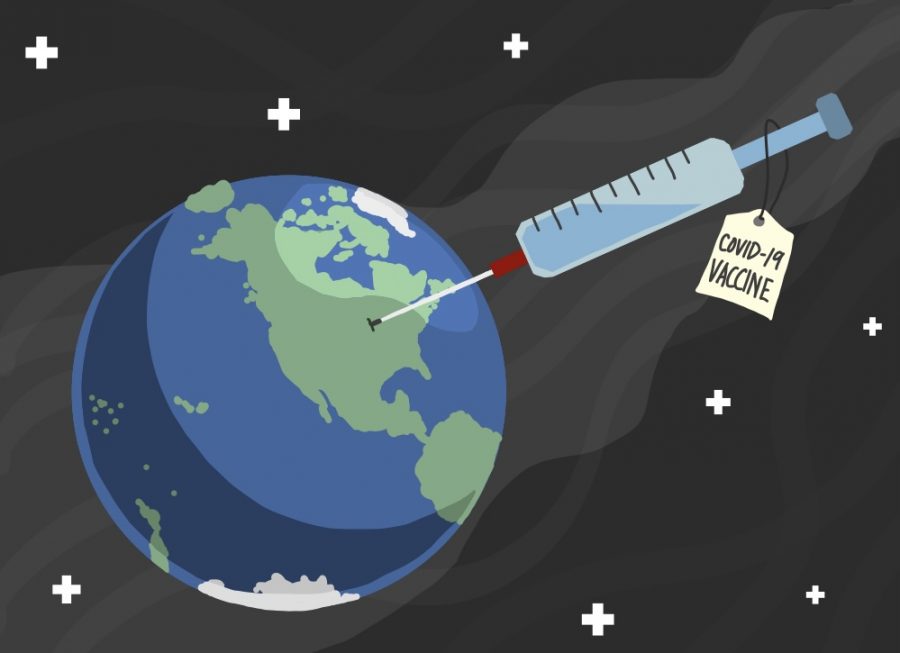Opinion: After FDA approval of the Pfizer vaccine, we need more effective discourse
September 16, 2021
The time has finally come. We have a Food and Drug Administration-approved vaccine to combat the COVID-19 pandemic. If the FDA considers the vaccine to be safe, what’s the holdup? Why is push-back against vaccination still so strong? Could it be a result of poor communication?
In the past few weeks, I have encountered a surprising amount of polarization regarding the vaccine and the cost associated with taking it. Just to be clear, there isn’t one. Unless you are allergic to the vaccine or are prone to severe reactions, there really isn’t a reason for the intense trepidation regarding the vaccine. Educating people on these facts should become an immediate priority for those who wish to engage in vaccine related discourse.
Establishing the negative effects of skipping vaccination is also an important part of the conversation.
According to Rochelle Walensky, director of the Centers for Disease Control and Prevention, refusing to vaccinate during a key period in virus development can result in “a very transmissible virus that has the potential to evade our vaccines in terms of how it protects us from severe disease and death.”
In other words, if you don’t take the vaccine, it not only inhibits your ability to fight the virus, but it also slows overall advancement towards herd immunity.
The most common anti-vaxx reason I hear is that it’s an issue of freedom. This confuses me beyond belief. While I understand the importance of medical privacy and autonomy, I disagree with the notion of skipping on a vital vaccine just to prove that you can.
It’s true, we can’t force people to vaccinate against their will. However, when considering the benefits of this vaccine and its ability to bring the world closer to normal, perhaps there should be incentives for vaccination.
In fact, you may have heard of instances of this approach already.
For students at Virginia Tech, the incentive is to be allowed into the university itself. The school has “disenrolled more than 100 students who failed to submit proof of vaccination before the start of the fall semester,” Forbes reported. This strict incentivization is a really important way to make sure that people understand and commit to the responsibility of keeping each other safe. Ultimately, that is the goal of mass immunization.
I do not intend to write this article to bash people who don’t vaccinate, because that approach just doesn’t seem effective. Instead, consider replacing the argumentative approach with civil conversation. Trust me, I understand the frustration, but angry rants won’t change anything.
Instead of criticizing vaccine hesitancy, try explaining why these anxieties have no basis in medical communities. To have effective discourse, we must avoid dismissive attitudes towards people we disagree with.
While the FDA approval speaks to the reliability of the vaccine, this does not mean that we should bombard people who remain unvaccinated with self righteous speeches and frustrated words.
If I can leave you with one thing, let it be this: Be respectful, and please, get vaccinated!









